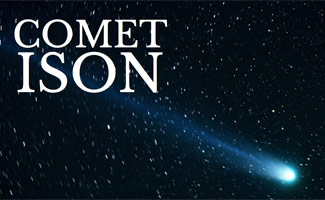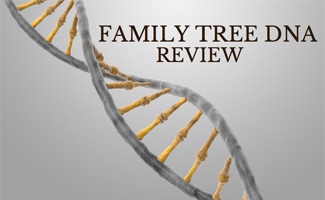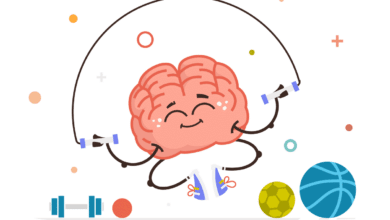Beyond The Stars
-
Beyond The Stars

Best Beginners Telescope: Celestron vs SVBONY vs Explore Scientific
Skywatching is a fun hobby. For some, it starts in childhood; for others, the interest…
Read More » -

-

-

-

Travel & Exploration
DNA & Genealogy
-
DNA & Genealogy

Ancestry Reviews: Is Ancestry Worth It To Trace Your Family History?
Ever wonder what mysteries lurk within your family tree? You might be surprised at what you can dig up about your roots with Ancestry.com. Is Ancestry legit? For sure, and it's among the best online…
Read More » -

-

-

-

Holistic Health
-
Holistic Health

Best Online Psychic Reading Service: Keen vs Psychic Source & More
Curious about your romantic future? Want to connect with a departed loved one? Ever wonder who you were in a…
Read More » -
Holistic Health

What Are The Best Communication Apps For Nonverbal Autism?
Autism rates have risen steadily since the 1990s, becoming a condition that affects about one in every thirty-six children in…
Read More » -
Holistic Health

Best Brain Training Apps In 2024: Elevate vs Lumosity vs BrainHQ vs CogniFit vs Peak vs NeuroNation
Do you lose your keys frequently or find yourself reading things multiple times to comprehend them? You may want to…
Read More » -
Holistic Health

No Two People Share The Exact Same Symptoms of Asperger’s
Asperger’s symptoms are going to vary widely from person to person. No two people share the exact same experience with…
Read More »
House & Home
-
Audible Review: Can You Listen to Your Heart’s Content?

If you, like me, love books in all forms, you have probably…
-
10 Best Clothing Subscription Boxes: Wantable vs Stitch Fix vs Trendy Butler vs Gwynnie Bee vs Fabletics & More

Monthly clothing subscriptions can help you reach your fashion potential, and they're…
-
Easy and Delicious Panang Curry Recipe

I'm not sure why it took a backpacking trip through North and…
-
Best Wireless Surround Sound? Heos vs Sonos vs Bose vs Airplay

Feel the music's bass in your body. Watch sports games as if…
-
Origins of Common Idioms

The origins of common idioms are as varied as the idioms themselves.…
-
World’s Most Historic Movie Theaters

When you want to go to the movies now a days you…
Love, Dating & Relationships
-
Love, Dating And Relationships

Permanent Jewelry: How it Works & Is It Right For You?
Jewelry is an accessory that has existed since ancient times and often symbolizes something much more profound than a simple…
Read More » -
Love, Dating And Relationships

Lab Created Diamonds Vs Real Diamonds: Do You Get The Same Wow Factor?
You might scoff at the idea of lab-grown vs natural diamonds. While lab-created diamonds are a booming industry these days…
Read More » -
Love, Dating And Relationships

Best Time to Buy an Engagement Ring
Are you ready to propose to that special someone? Congrats! This is the start of an exciting journey for you…
Read More » -
Love, Dating And Relationships

Engagement Ring vs Wedding Ring: What’s the Difference?
Okay, so almost any woman may consider this article common knowledge but we're guessing there are a few hopeful fiancés…
Read More » -
Love, Dating And Relationships

Whiteflash Reviews: Falling In Love Doesn’t Have To Be Expensive
Looking for a less expensive way to purchase your sweetie's engagement ring? Have you looked into purchasing the ring online…
Read More »
Sports & Outdoors
-
Sports And Outdoors

8 Best Outdoor Bluetooth Speakers: JBL Boombox 3 vs Ultimate Ears Megaboom 3 vs Marshall Emberton II vs Turtlebox Gen 2 vs Sonos Move vs Bose SoundLink & More
Bluetooth speakers deliver quality sound while being portable and compact. However, some of these speakers can get pretty pricey. So you should…
Read More » -
Sports And Outdoors

7 Best Hoverboards For Kids: Beginners, Experts, All-Terrain & More
Many years ago, I bought a hoverboard for my 12-year-old nephew's birthday. I did a ton of research into them…
Read More » -
Sports And Outdoors

Best Camping Gear: For Cooking, Car Camping, Couples, Winter, Dogs, & More
Camping is one of the most relaxing vacations you can take. After you've purchased your camping equipment, camping can be…
Read More » -
Sports And Outdoors

What Is The Best Hoverboard? Powerboard vs Razor Hovertrax vs EPIKGO
Are your kids begging you for the latest "it" toy — a hoverboard? Today's hoverboards aren't the levitating skateboards you've…
Read More »
It's Five O' Clock Somewhere
-
It's Five O' Clock Somewhere

Best Cigar Subscription: Monthly Cigar Club Reviews
From cigar manufacturers based in Cuba and the Dominican Republic to Jamaica and the good old USA, there are so many truly excellent cigars and tobacco blends to discover. For a small cost, you can…
Read More » -

-

-

-

Entrepreneurs And Economics
-
Entrepreneurs And Economics

What Is The Most Expensive Thing On Amazon? (Top 10 List)
Looking to drop some serious coin on an amazing Amazon products? We can help you…
Read More » -

-

-

-

Mysteries Of The World
-
Mysteries Of The World

What Do Freemasons Do At Meetings? Masonic Secrets Revealed
Secret societies are fascinating, and there may be none more interesting than the Freemasons. The mystery and myth run deep…
Read More » -
Mysteries Of The World

What Really Happened On December 21, 2012?
Since the Mayan calendar is based on cycles, December 21, 2012 merely indicates the end of a cycle that began…
Read More » -
Mysteries Of The World

Why Am I Here? And How Do I Find My Purpose In Life?
A purpose is the reason we exist. Only humans seek to have a purpose. Animals don't wonder why they are…
Read More » -
Mysteries Of The World

Fascinating Facts About The Twelve Disciples
The twelve disciples, often referred to as the twelve apostles of Jesus Christ were twelve of the followers of Jesus…
Read More » -
Mysteries Of The World

Do You Ever Ponder Our Purpose?
Do you ever ponder our purpose? What are we doing on this planet? Have you ever taken a break from…
Read More »





